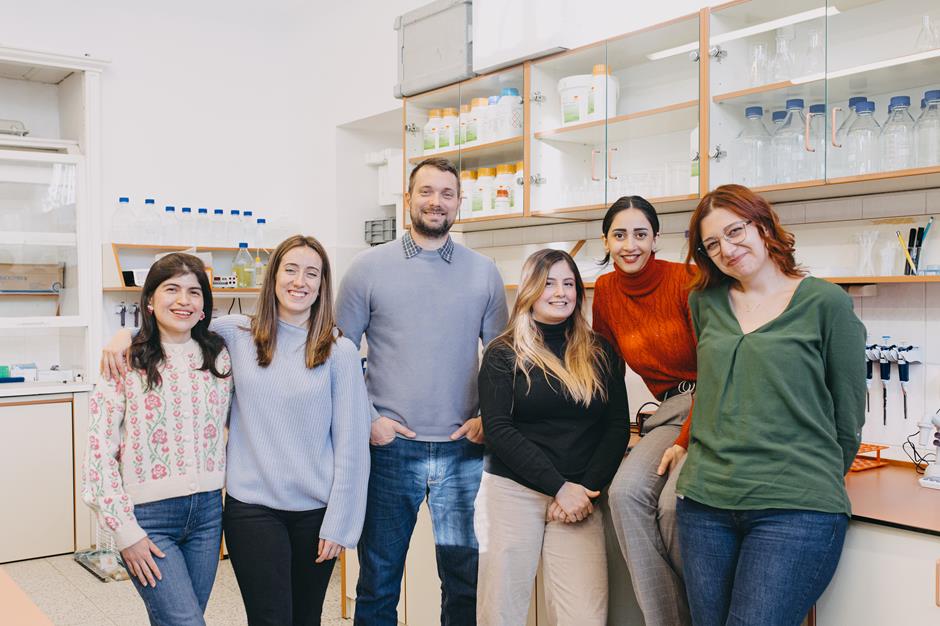
Dr. Martin Sztacho began his scientific career at Charles University in Prague, investigating regulatory pathways of metastatic sarcoma cell invasiveness in Prof. Jan Brábek’s lab. He pursued a Ph.D. through the Max Planck Institute’s international program in Dresden, where he studied podosomes in osteoclasts under Prof. Bernard Hoflack, linking these structures to invadopodia involved in cancer cell invasion. Following this, Dr. Sztacho joined Prof. Sascha Martens’ lab at Max Perutz Labs in Vienna, foc
using on the molecular mechanisms of autophagy and its role in cancer progression. In 2017, he returned to Prague to work with Prof. Pavel Hozák at the Institute of Molecular Genetics, where he explored the role of nuclear phosphoinositides in gene expression regulation and nuclear architecture, particularly in the context of RNA Polymerase II transcription. His current research focuses on the mechanisms of phase separation driving the formation of biomolecular condensates that contribute to the spatiotemporal organization of intracellular architecture in cancer cells.
Dr. Agnieszka Chytła started her scientific journey at the University of Wroclaw in Poland, where, during her master's studies and continuing through her PhD, she delved into understanding the detailed mechanism of membrane raft organisation, with a particular emphasis on the role of the MPP1 protein in stabilising flotillin nanodomains. She defended her PhD thesis in 2023 and has been a postdoctoral fellow at the Institute of Biochemistry and Experimental Oncology since April 2024. Her current work focuses on understanding how phosphoinositides and RNA contribute to phase separation, and how this process shapes cellular organisation and impacts disease
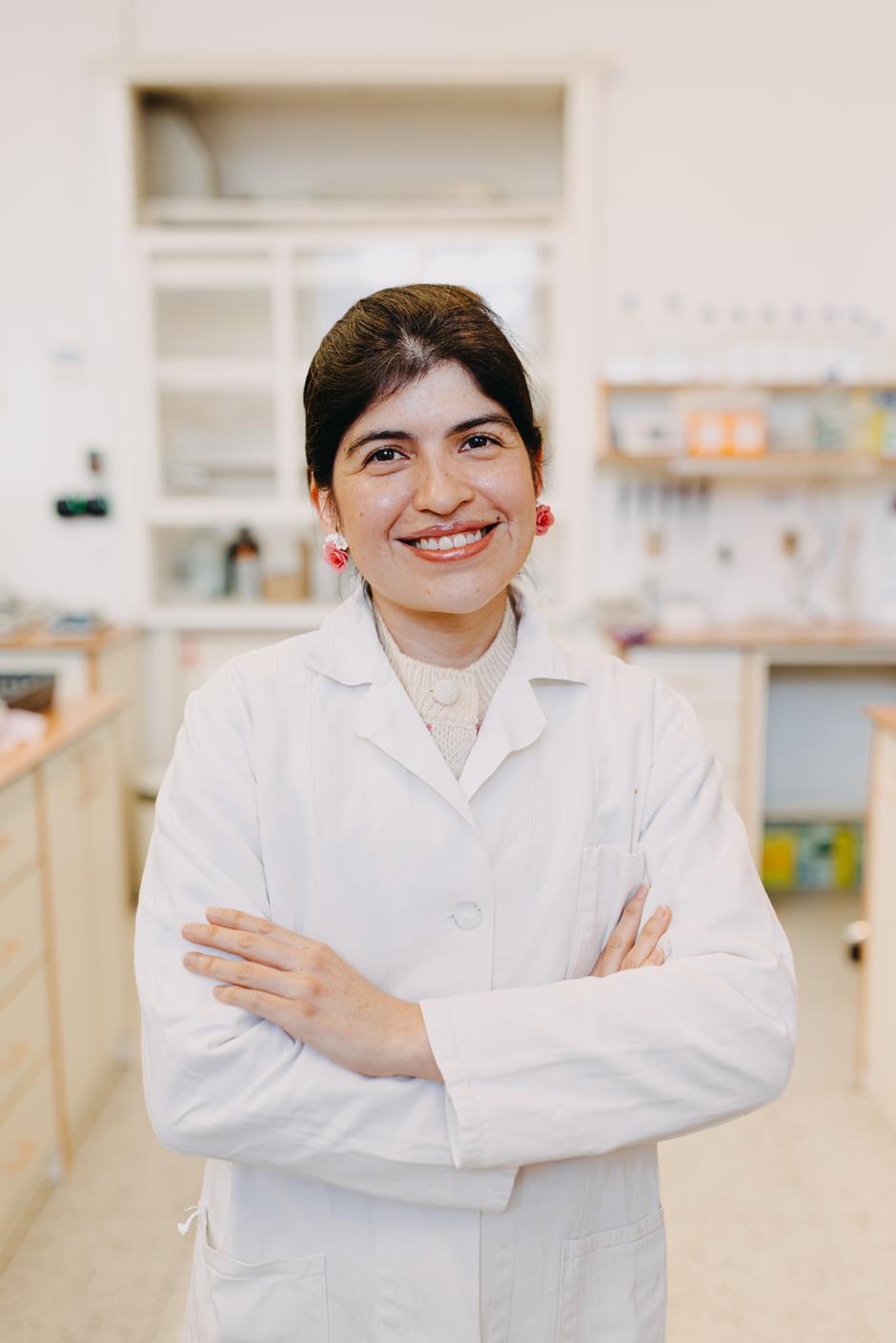 Dr. Claudia Carrera-Bravo is a Peruvian scientist whose academic and professional journey spans South America, Europe and Asia. She earned her bachelor’s degree from Universidad Peruana Cayetano Heredia, her master’s degree from the University of Nottingham and her PhD from the National University of Singapore. While her previous research focused on malaria, Claudia transitioned to oncology after completing her PhD, driven by a passion for translational medicine. Her current project explores vesicle trafficking and intercellular communication in cancer, with a particular focus on the role of extracellular vesicles in the tumor microenvironment. By studying the effects of commercially available drugs, her work also aims to assess the feasibility of repurposing existing therapies for Glioblastoma.
Dr. Claudia Carrera-Bravo is a Peruvian scientist whose academic and professional journey spans South America, Europe and Asia. She earned her bachelor’s degree from Universidad Peruana Cayetano Heredia, her master’s degree from the University of Nottingham and her PhD from the National University of Singapore. While her previous research focused on malaria, Claudia transitioned to oncology after completing her PhD, driven by a passion for translational medicine. Her current project explores vesicle trafficking and intercellular communication in cancer, with a particular focus on the role of extracellular vesicles in the tumor microenvironment. By studying the effects of commercially available drugs, her work also aims to assess the feasibility of repurposing existing therapies for Glioblastoma.
MSc. Elena Herencia Lagunar holds a
degree in Veterinary Medicine and a Masters in Virology. With a strong
interdisciplinary background, she has gained extensive experience in molecular
biology and d
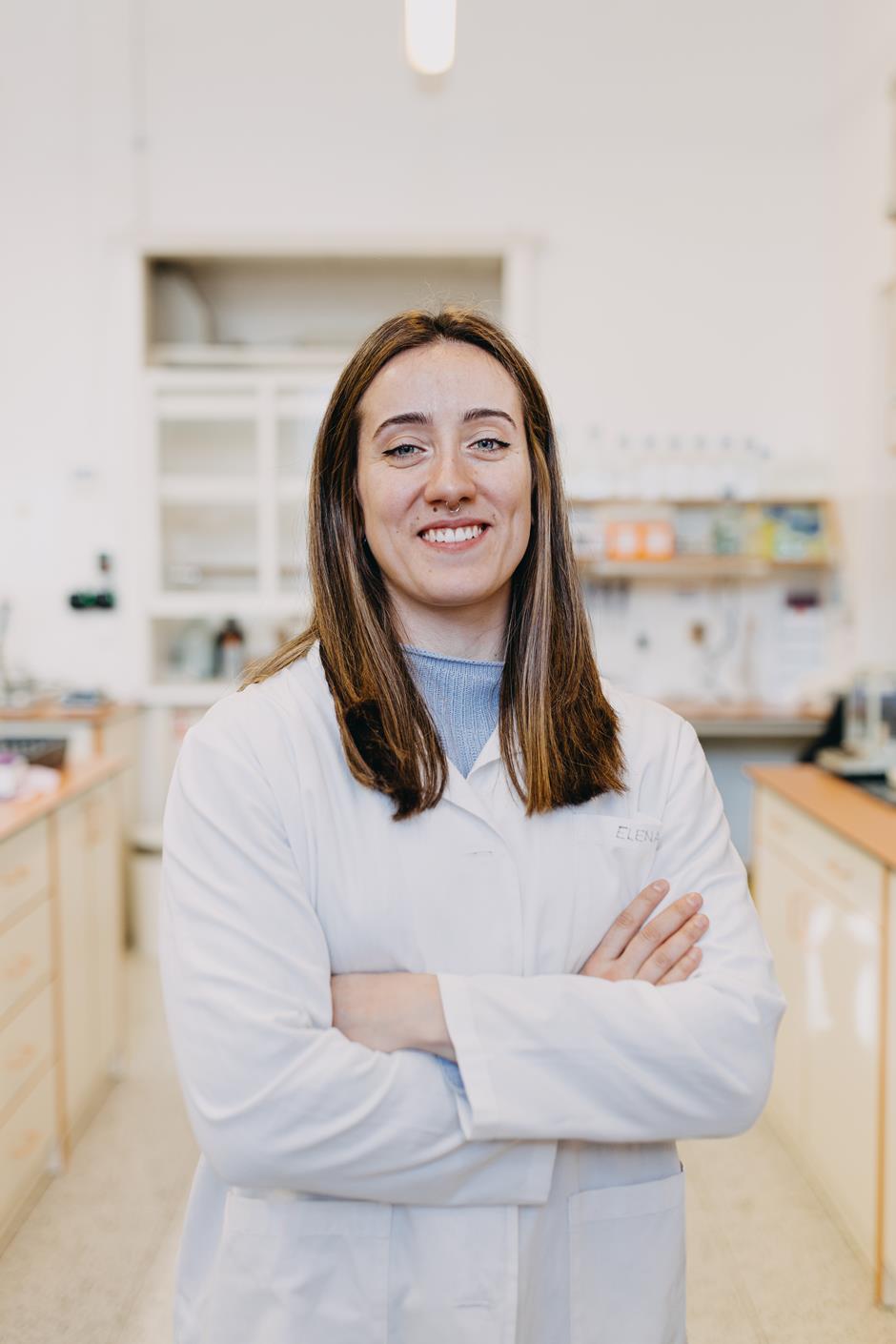 iagnostics. She is currently pursuing a PhD in cancer cell
biology, focusing on the formation and function of glycolytic condensates in
glioblastoma cells under hypoxic conditions. She uses protein purification,
mass spectrometry and advanced microscopy to study molecular composition and
spatial dynamics within the cell. Her work aims to elucidate how biomolecular
condensates contribute to metabolic adaptation in low-oxygen environment,
providing insights into cancer cell physiology and potential new therapeutic
strategies.
iagnostics. She is currently pursuing a PhD in cancer cell
biology, focusing on the formation and function of glycolytic condensates in
glioblastoma cells under hypoxic conditions. She uses protein purification,
mass spectrometry and advanced microscopy to study molecular composition and
spatial dynamics within the cell. Her work aims to elucidate how biomolecular
condensates contribute to metabolic adaptation in low-oxygen environment,
providing insights into cancer cell physiology and potential new therapeutic
strategies.
MSc. Rabia Gonul completed her undergraduate studies in Genetics and Bioengineering at Istanbul Bilgi University in 2019, where she studied molecular biology, genetic engineering, bioinformatics, and biochemistry. She earned her Master’s degree in Biological Sciences from Ege University in 2022, focusing on the molecular mechanisms underlying the relationship between circadian rhythm and GABA biosynthesis. Rabia’s Ph
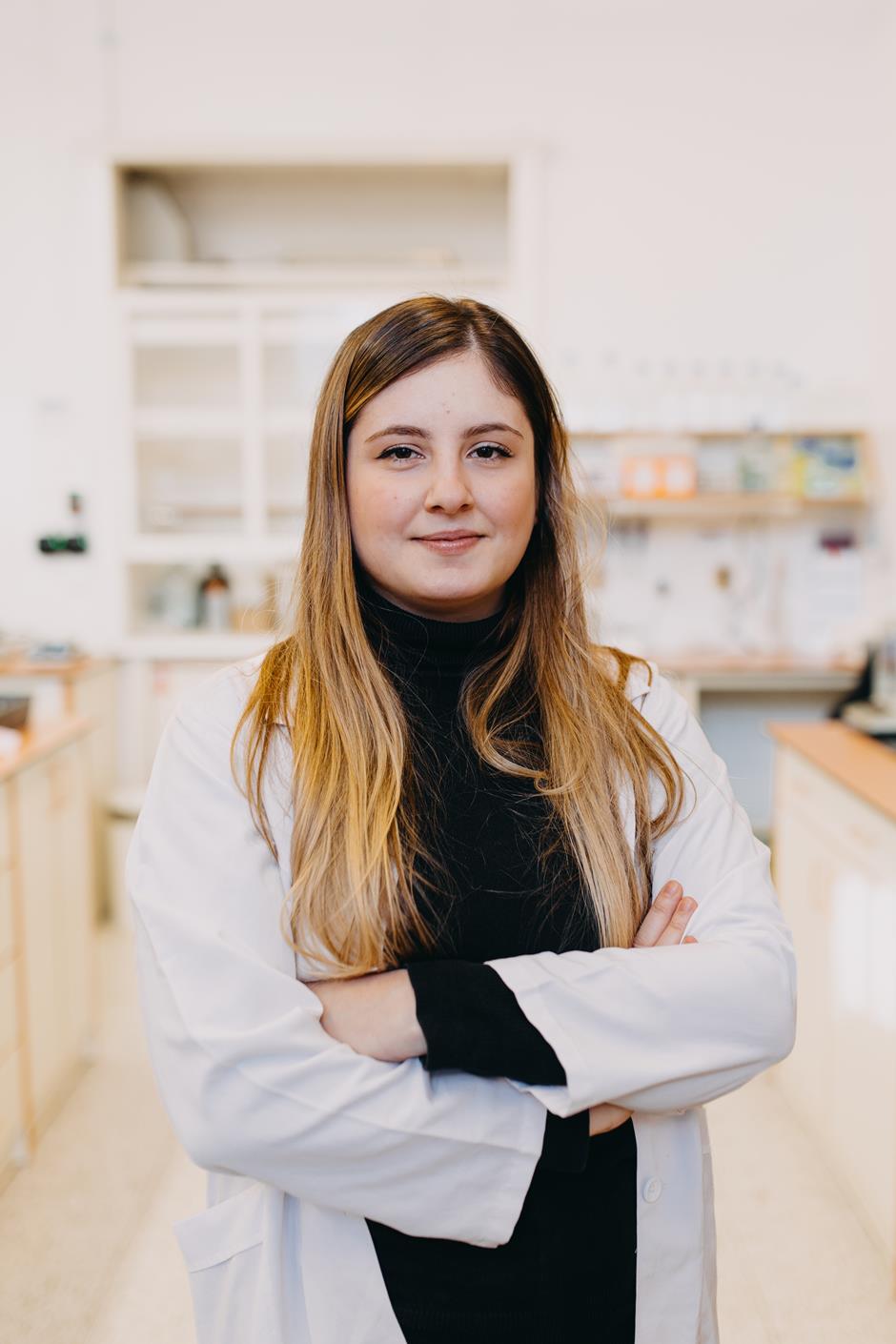 D project investigates the impact of nuclear phosphatidylinositol
4,5-bisphosphate (PIP2) manipulation on transcriptional regulation in cancer
cells. She is developing an inducible system to selectively reduce nuclear PIP2
levels in order to investigate its role in transcriptional regulation during
cancer progression.
D project investigates the impact of nuclear phosphatidylinositol
4,5-bisphosphate (PIP2) manipulation on transcriptional regulation in cancer
cells. She is developing an inducible system to selectively reduce nuclear PIP2
levels in order to investigate its role in transcriptional regulation during
cancer progression.
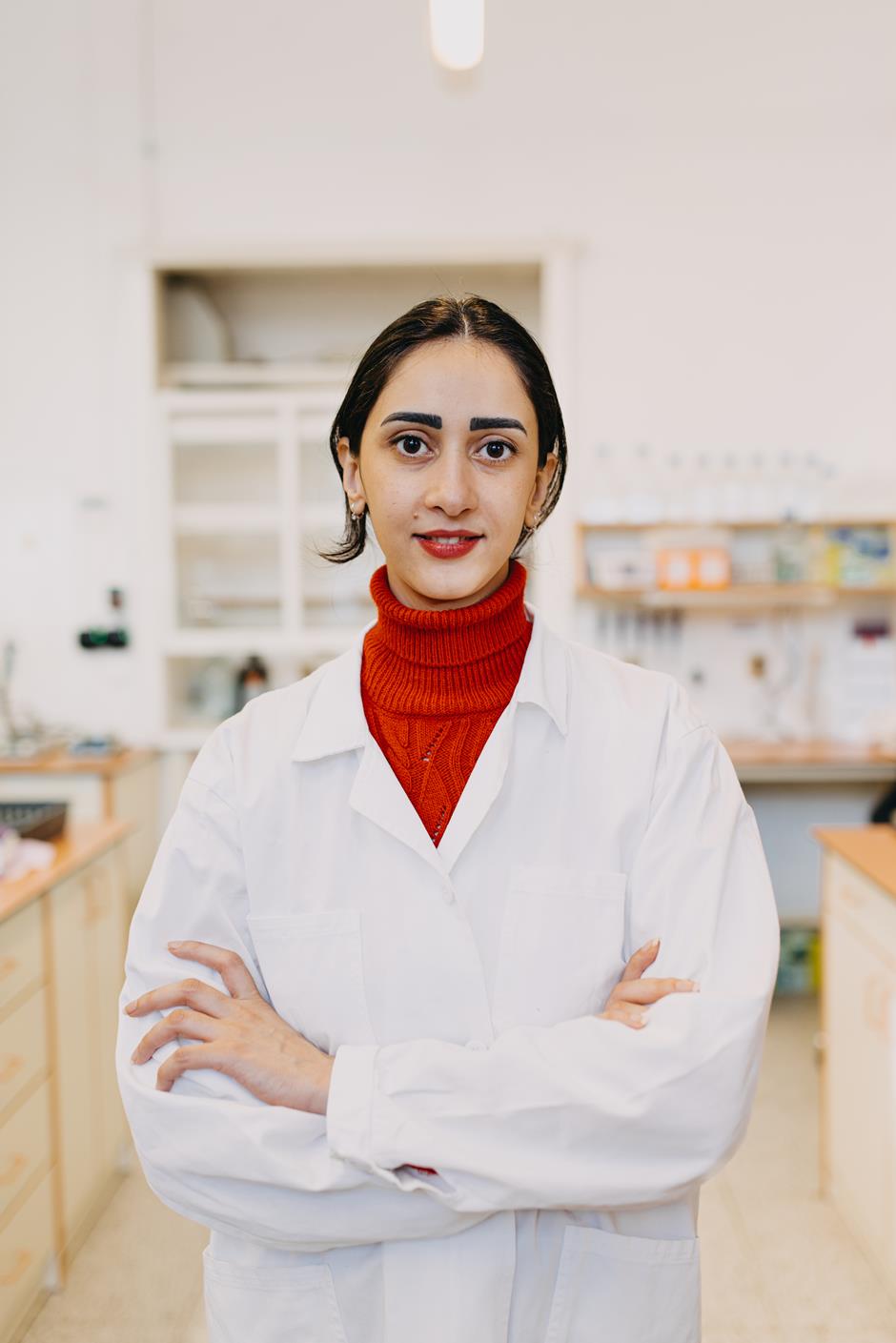 MSc. Soodabeh Abbasi Sani holds
a Master's degree in Biochemistry from Iran, where she began her
research in head and neck cancer biology, focusing on the identification
of potential biomarkers. Since 2014, she has continued her scientific
career in the Czech Republic, conducting research at Masaryk University
and the Institute of Biophysics in Brno. She has extensive experience
working with human stem cells and is certified in animal research by the
University of Veterinary Sciences in Brno.Currently,
at the Laboratory of Cancer Cell Architecture, her research centers on
understanding how cellular organization is altered during cancer
progression. She investigates biomolecular condensation and phase
separation, employing mass spectrometry to uncover novel
post-translational modifications (PTMs). Her PhD project specifically
focuses on the identification and functional study of protein
phospholipidation, aiming to unravel its role in cancer biology.
MSc. Soodabeh Abbasi Sani holds
a Master's degree in Biochemistry from Iran, where she began her
research in head and neck cancer biology, focusing on the identification
of potential biomarkers. Since 2014, she has continued her scientific
career in the Czech Republic, conducting research at Masaryk University
and the Institute of Biophysics in Brno. She has extensive experience
working with human stem cells and is certified in animal research by the
University of Veterinary Sciences in Brno.Currently,
at the Laboratory of Cancer Cell Architecture, her research centers on
understanding how cellular organization is altered during cancer
progression. She investigates biomolecular condensation and phase
separation, employing mass spectrometry to uncover novel
post-translational modifications (PTMs). Her PhD project specifically
focuses on the identification and functional study of protein
phospholipidation, aiming to unravel its role in cancer biology.

